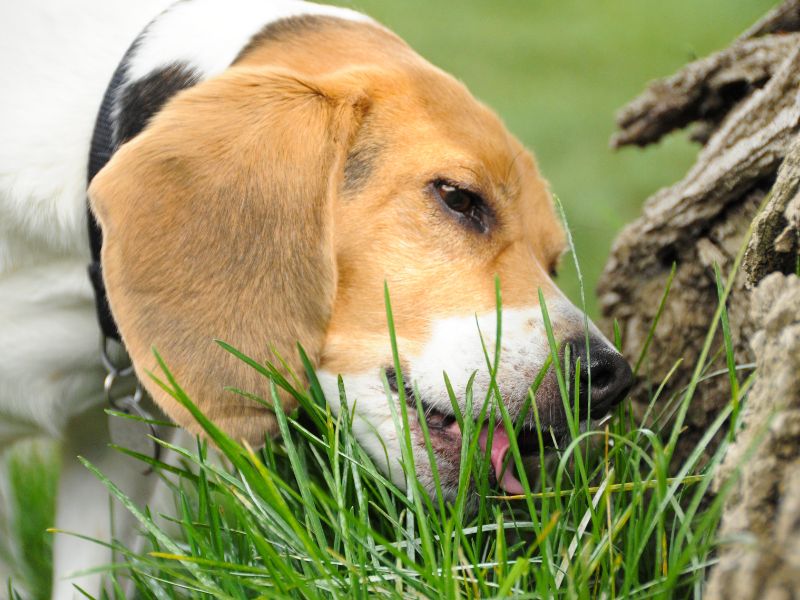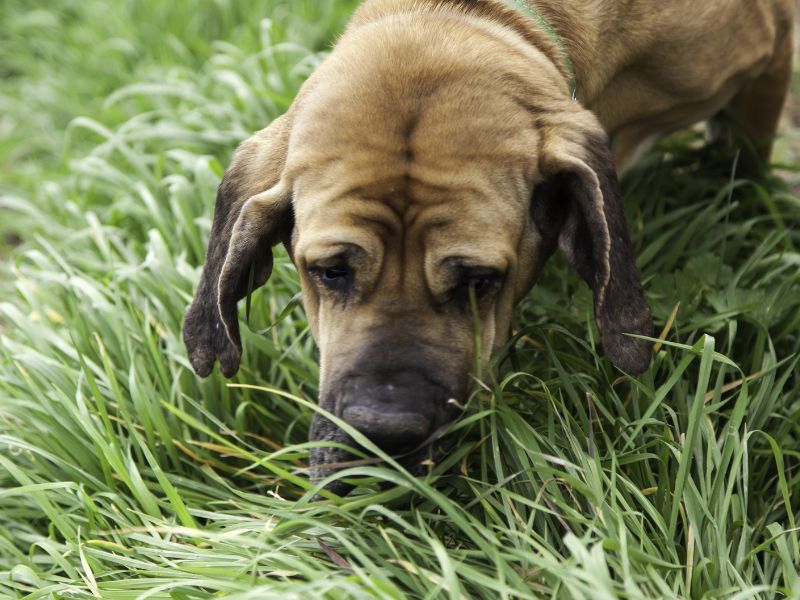Unraveling the Mystery
Dogs are known for their curious behavior, and one of the most perplexing habits is their propensity to eat grass. For years, the reason behind this behavior remained a mystery, with many dog owners speculating that it was due to boredom or illness. However, recent studies have revealed that there is a scientific explanation for why dogs eat grass. In this article, we will delve into the evolutionary history of dogs, the nutritional benefits of grass, potential health risks, and tips for preventing your dog from eating grass.
Common Misconceptions about Dogs Eating Grass
Before we dive into the science behind why dogs eat grass, let’s dispel some common misconceptions. Many dog owners believe that dogs eat grass when they are feeling sick or have an upset stomach. While it is true that some dogs may eat grass to induce vomiting when they are feeling ill, this is not the primary reason why dogs eat grass. In fact, studies have shown that only a small percentage of dogs vomit after eating grass.
Another common misconception is that dogs eat grass because they are not getting enough nutrients from their diet. While it is true that some dogs may eat grass to supplement their diet, this is not the only reason why dogs eat grass. In fact, studies have shown that even dogs who are on a well-balanced diet may still eat grass.

Scientific Theories on Why Dogs Eat Grass
So, if dogs aren’t eating grass to supplement their diet or to induce vomiting, why do they eat grass? There are several scientific theories that attempt to explain this behavior. One theory is that dogs eat grass as a form of self-medication. Grass contains fiber, which can help with digestion, and it also contains phytochemicals that may have medicinal properties.
Another theory is that dogs eat grass as a way to fulfill their ancestral instinct to hunt and forage for food. In the wild, dogs would eat a variety of plant material, including grass, as a way to supplement their diet. This instinct may still be present in modern-day dogs, even though they are domesticated.
Finally, some experts believe that dogs eat grass simply because they enjoy the taste and texture. Grass may provide a satisfying crunch that dogs find appealing, and the taste of different types of grass may be intriguing to them.
Nutritional Benefits of Grass for Dogs
While grass may not be a necessary part of a dog’s diet, there are some nutritional benefits to eating grass. Grass contains fiber, which can aid in digestion and promote bowel regularity. It also contains vitamins and minerals, including vitamin E, vitamin K, and calcium.
However, it’s important to note that not all types of grass are safe for dogs to eat. Some types of grass, such as Bermuda grass and ryegrass, can be difficult to digest and may cause gastrointestinal issues. Additionally, grass that has been treated with pesticides or herbicides can be toxic to dogs.
Health Risks Associated with Dogs Eating Grass
While there are some nutritional benefits to eating grass, there are also potential health risks that dog owners should be aware of. As previously mentioned, some types of grass can be difficult to digest and may cause gastrointestinal issues, such as vomiting and diarrhea. Additionally, dogs who eat grass that has been treated with pesticides or herbicides may experience toxic reactions, including seizures and respiratory distress.
Another potential health risk associated with dogs eating grass is the risk of intestinal obstruction. Dogs who eat large amounts of grass may develop a blockage in their digestive tract, which can be life-threatening if not treated promptly.
Understanding Your Dog’s Behavior and Determining if Grass Eating is a Problem
As a dog owner, it’s important to understand your dog’s behavior and determine if grass eating is a problem. If your dog is only eating small amounts of grass occasionally, it is likely not a cause for concern. However, if your dog is eating large amounts of grass on a regular basis, it may be a sign of an underlying health issue.
If you are concerned about your dog’s grass-eating behavior, it’s important to consult with your veterinarian. Your vet can perform a physical exam and run diagnostic tests to rule out any underlying health issues. They can also provide advice on how to prevent your dog from eating grass and recommend alternative sources of fiber and nutrients.

See Also: Nourish Your Pooch with a Delicious Vegan Diet
And: The Warning Signs: Identifying Internal Parasites in Dogs
Alternatives to Grass for Dogs
If you are concerned about your dog’s grass-eating behavior, there are several alternatives that you can provide. One option is to provide your dog with a high-fiber diet that includes fruits and vegetables. Another option is to provide your dog with a variety of toys and chews to keep them occupied and prevent boredom.
Additionally, you may want to consider providing your dog with a designated area of your yard where they are allowed to graze. This can help prevent your dog from eating grass that has been treated with pesticides or herbicides.
Tips for Preventing Your Dog from Eating Grass
If you are concerned about your dog’s grass-eating behavior, there are several tips that you can follow to prevent it. One tip is to supervise your dog when they are outside and redirect their attention if they start to eat grass. You can also provide your dog with plenty of exercise and mental stimulation to prevent boredom.
Another tip is to provide your dog with a variety of toys and chews to keep them occupied. If your dog is prone to eating grass when they are bored, providing them with a distraction can help prevent the behavior.
Finally, you may want to consider using taste deterrents to prevent your dog from eating grass. There are several products on the market that are designed to make grass taste unpleasant to dogs, such as bitter apple spray.
Conclusion: The Final Word on Dogs Eating Grass
In conclusion, while the reason behind why dogs eat grass may still be somewhat of a mystery, recent studies have shed light on this curious behavior. While there are some potential health risks associated with dogs eating grass, there are also some nutritional benefits. As a dog owner, it’s important to understand your dog’s behavior and determine if grass eating is a problem. If you are concerned about your dog’s grass-eating behavior, it’s important to consult with your veterinarian and take steps to prevent the behavior. By providing your dog with a well-balanced diet, plenty of exercise and mental stimulation, and alternative sources of fiber and nutrients, you can help ensure that your furry friend stays healthy and happy.

